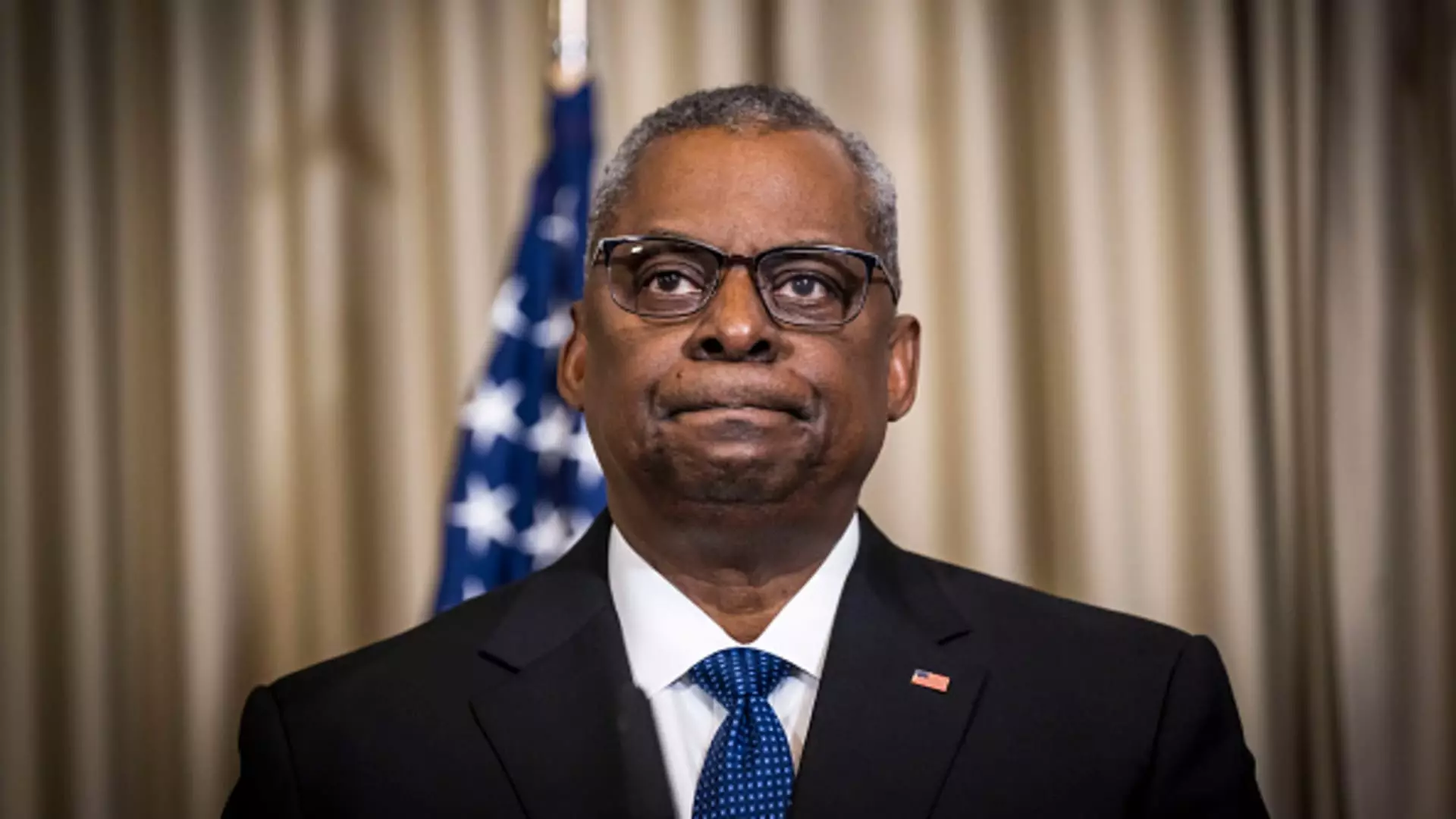The recent controversy surrounding Defense Secretary Lloyd Austin’s failure to disclose his emergency hospitalization has raised concerns among White House officials and members of Congress. Austin was admitted to the intensive care unit at the Walter Reed National Military Medical Center on January 1st, following complications from an elective surgery he had on December 22nd. However, he did not inform White House officials of his medical status for three days, leading to questions about his transparency and potential national security implications.
Austin’s decision to keep his hospitalization a secret during a week when the U.S. was considering important national security matters is a cause for alarm. The U.S. was weighing military action in the Middle East, including a drone strike in Baghdad that killed an Iran-backed militia leader. Additionally, discussions were underway regarding a potential strike against the Iran-backed Houthi rebel group due to their attacks on commercial ships in the Red Sea. With these critical decisions being made, Austin’s lack of transparency raises concerns about his ability to effectively fulfill his duties as Defense Secretary.
Members of Congress from both parties have expressed their concerns over Austin’s handling of the situation. Representatives from the House Armed Services Committee issued a joint statement demanding more clarity on the undisclosed hospital stay. While they wished Austin a speedy recovery, they called for greater transparency and accountability. Furthermore, Republican Representative Elise Stefanik went a step further and called for Austin’s resignation, urging Congress to launch a formal investigation into the incident.
Despite the criticism and calls for resignation, White House officials have expressed their support for Austin. National Security Council spokesperson John Kirby emphasized that there are no plans for Austin to step down and that he will continue in his role as Defense Secretary. White House press secretary Karine Jean-Pierre reiterated President Joe Biden’s “complete confidence” in Austin and highlighted a “warm conversation” between the two leaders over the phone. However, the White House acknowledges the need to improve communication protocols and is committed to making necessary changes.
In response to the controversy, Austin took responsibility for the lack of transparency and expressed his commitment to doing better. While he did not disclose the details of his initial elective surgery or the reasons for delaying the notification to the White House, Austin recognized that he should have done a better job in keeping the public appropriately informed. His acknowledgement of the mistake shows his willingness to learn from the incident and improve his communication practices moving forward.
The incident involving Austin underscores the significance of transparency in leadership, especially in critical positions such as the Defense Secretary. Open and honest communication is essential for building trust among peers and ensuring effective decision-making. Austin’s failure to disclose his hospitalization not only raises concerns about his personal judgment but also casts doubt on his ability to lead effectively in times of national security crises.
The White House’s commitment to reviewing and enhancing communication protocols is a step in the right direction. Improved processes and procedures can help prevent similar incidents from occurring in the future. It is vital for the Defense Secretary and other high-ranking officials to prioritize transparency and ensure timely and accurate communication with relevant stakeholders, including the White House and members of Congress.
Defense Secretary Lloyd Austin’s lack of transparency regarding his emergency hospitalization has ignited controversy and raised concerns about his ability to fulfill his duties effectively. The incident highlights the importance of transparency in leadership and the need for enhanced communication protocols. While Austin has expressed his commitment to improving, the calls for his resignation and a formal investigation persist. The White House has maintained its support for Austin but will work towards strengthening communication practices to prevent such incidents from happening again. As the nation faces ongoing national security challenges, it is imperative for leaders to prioritize transparency and uphold the trust of the American people.

Leave a Reply